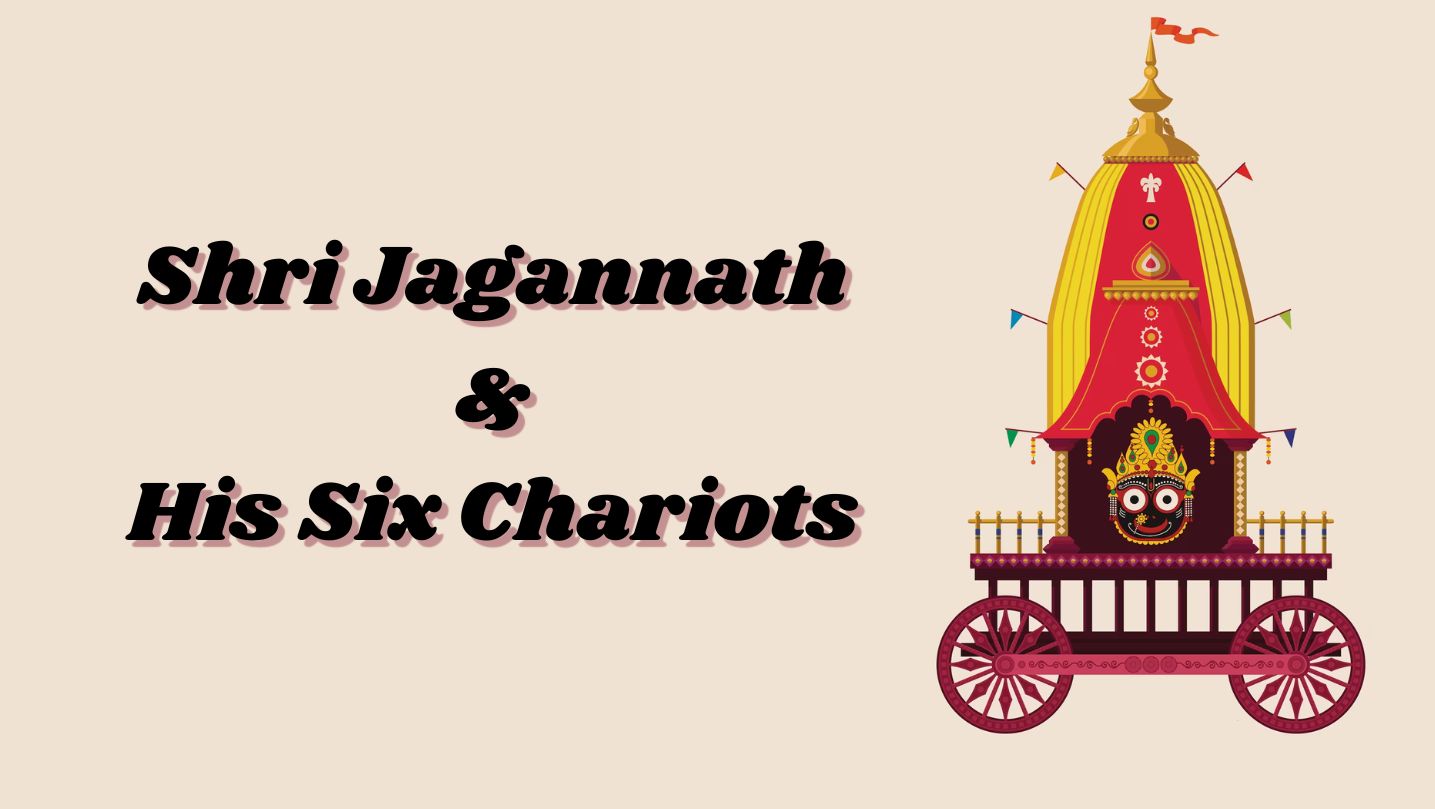
The Chaitanya Charitamrita by Shri Krishna Das Kaviraj provides a vivid description of the operations management of Shri Gundicha Yatra during the times of Suryavamshi Gajapati Maharaj Shri Pratap Rudra Dev Routray & how Shri Chaitanya used to form as many as 07 teams for Sankirtan each lead by one of his devotees who had a nice voice & in the midst of this roar how Shri Chaitanya used to assume the form of a lion & loose his senses to utter ecstasy throughout the journey till the chariots reached Shri Gundicha. Some of the texts also indicate that he will not cross the River Malini by boat rather swim through it to reach the other side imaging the Malini as Yamuna Ji, as he felt that the Shri Gundicha Yatra was always return to Braj Mandal for the Shree Jeu’s.
Historically the Malini river, a tributary of River Bhargavi used to flow dissecting the current day Bada Danda (Grand Road) – 3.5kms stretch through which the Chariots are be pulled. The Chaitanya Charitamrita provides insight & acts as one of the literary evidences of the fact that how a total of 06 Chariots used to be constructed & to be used for the Shree Jeu’s on both sides of the river for ensuring the vigrahas would reach Shri Gundicha Temple.
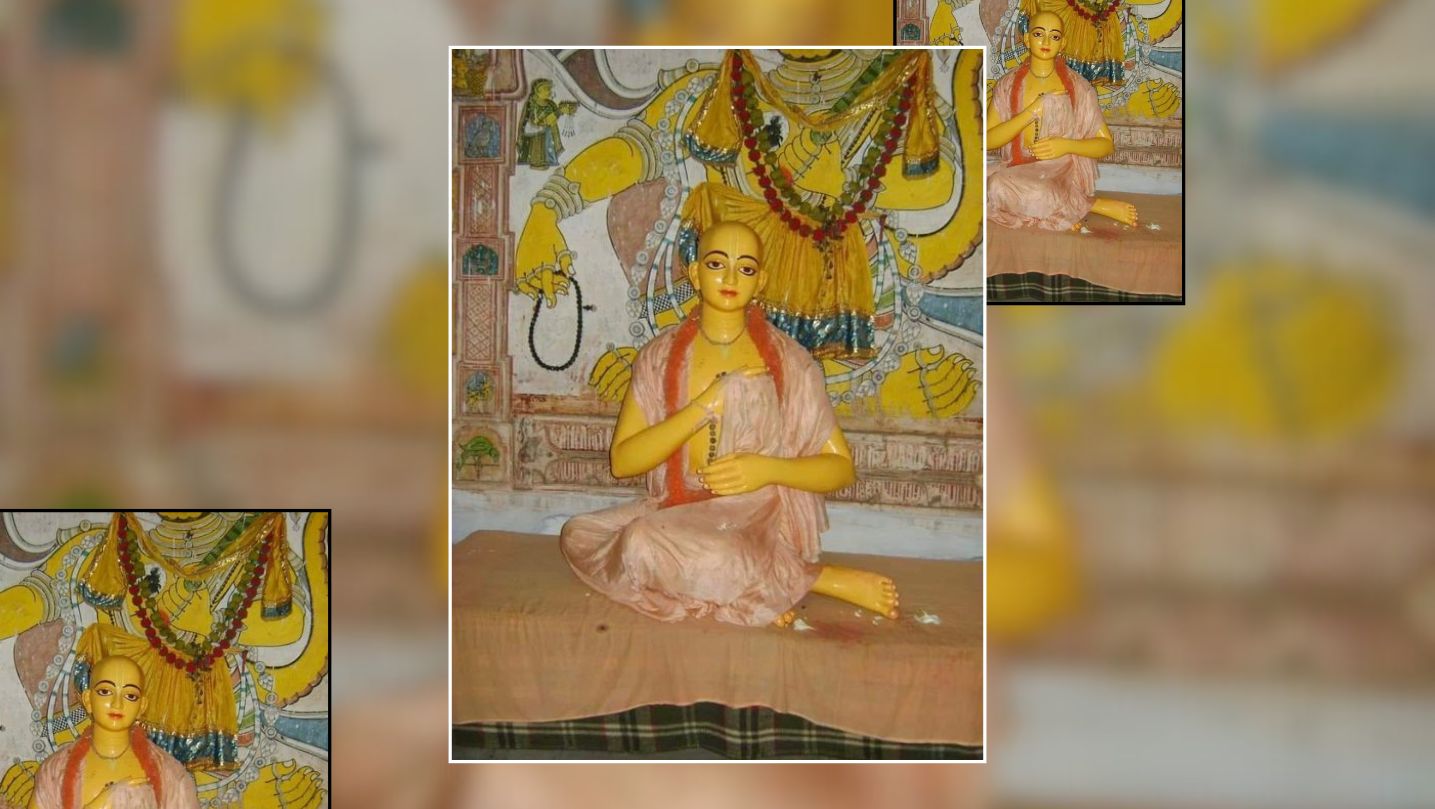
Additionally there was another chariot for carrying the Ghantua sevaks, pakhauj artists, the deva dasi’s performing Nritya seva & a few other performing artists forming a part of the entourage conducting Pahaundi Bije. While there has been contradictions between historians / scholars stating that the deities used to cross Malini river on boats, some say they were taken to the other side by a make shift bridge. Again the type of boats used were Chappa Boats currently used in the Chandan Yatra festival, having a deep & robust hull.
The popular opinion on the Malini River being closed down is captured wherein Smt. Saradha Devi, the wife & chief consort of then Puri king Gajapati Narasingh Dev, dreamt of Mahaprabhu Jagannath ordering her to have a single yatra without any pit stop. Consequently, the mouth of the river Malini was closed & the river was filled with sand. This closed mouth is now called Banki Muhana and since then, the place has been known as Saradha Setu or Saradha Baali. The devotees put the holy sand of ‘Saradha Baali’ on their head, rubs the sand on their entire body, rolls on the sand and being fully absorbed with love for Mahaprabhu, the devotees are totally overwhelmed & lose themselves, akin to taking a full on body roll or resembling the very practice of immersing in Braj Raaj in BRAJ Mandal.
When Shri Mahaprabhu comes out of Bada Deul (Sri Mandir) on his 9-day sojourn, known as Shri ‘Gundicha Jatra’, his chariot stops at this ‘Saradha Baali’. From the ‘Saradha Baali,’ Mahaprabhu Jagannath is taken in a “Pahaundi” (ceremonial carrying of the Lord by Daitapati Servitors on their shoulders) for being placed in the Sanctum Sanctorum in the Gundicha Temple (known as Adap Mandap or Janma Bedi)."
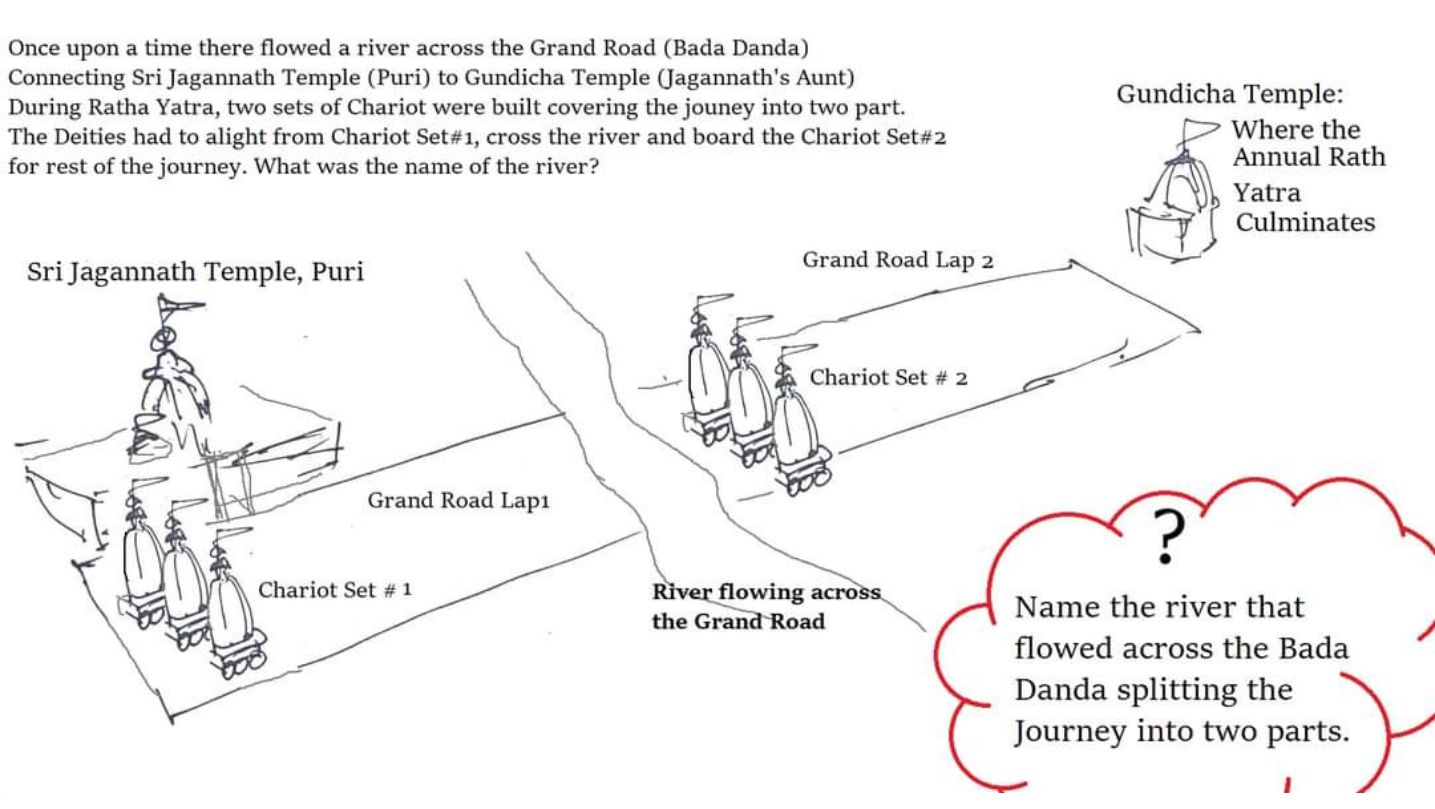
Since Mahaprabhu is taken in a ‘Pahaundi’ from this place before entering into the Sri Gundicha Temple, the sand of this place is accepted as very holy. This ‘Saradha Baali’ is no ordinary sand, it is also called ‘Bajra Dhuli’. The vast land extending from Sri Gundicha temple up to Bada Sankha is known as ‘Saradha Baali’.
The role of Shri Chaitanya & Gaudiya Bhakti movement during the medieval period coupled with his involvement in the entire episode in every years Rath Yatra, the introduction of various steps by Shri Chaitanya for the unification of his Gaudiya & Odiya devotees is astounding. Many of these traditions even live today & celebrated with utmost joy each year by all, which adds to the overall flavour of the Rath Yatra.
Sketch painting by my friend Shri Sunil Biswal which inspired this article. In the coming weeks will share a few more such interesting historical anecdots on Rath Yatra for the knowledge & understanding of the enormous cultural hertiage that rests in this international event of Bharat.
Lest We Forget.
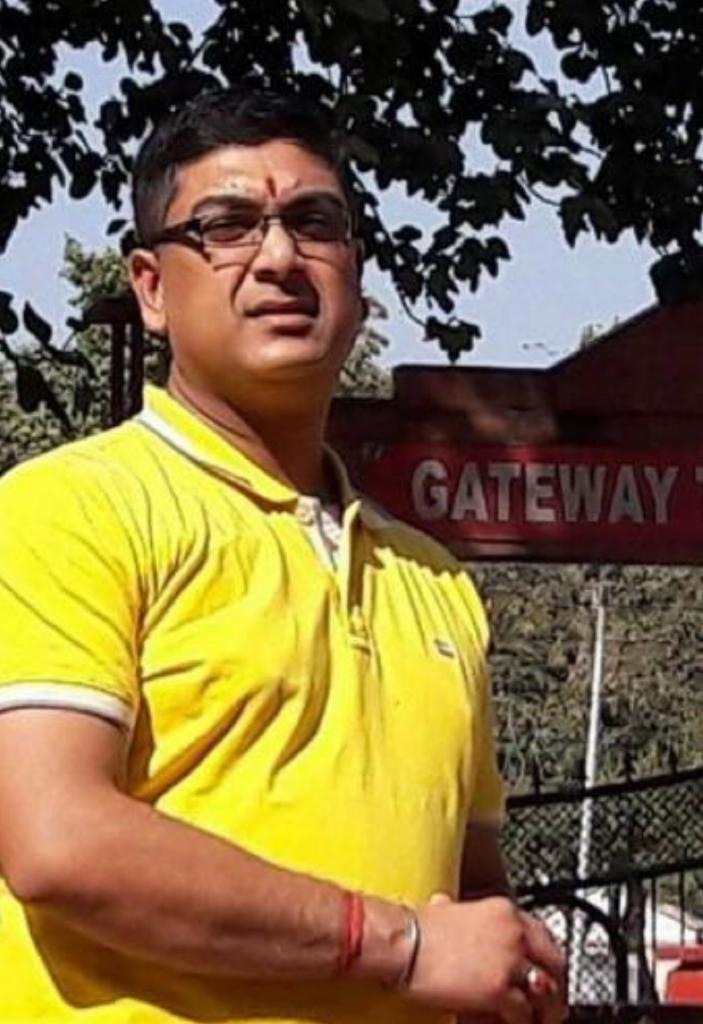 Surya Roy is an IT professional , Heritage Conservationist, explorer & an independent Indic History researcher whose research spans across the History & Culture of Vraj Mandal, Kurukshetra, Odisha, Bengal, Mewar & the Maratha history. He is a keen student of archaeology & focuses on the enlistment of Heritage properties & preservation of ancient manuscripts. A Life Member & Researcher with INTACH New Delhi HQ, he is also an Associate Member of ICOMOS (International Council of Monuments & Sites) which is an UNESCO body formed under the Geneva Council of 1974 for the preservation & conservation of Archaeological sites. He is also the Director of North India Operations with IHAR (Indian History awareness & Research) an US, based NGO which engages in research, preservation & practising of Indian Heritage, history, culture & of Indian Knowledge systems (IKS).
Surya Roy is an IT professional , Heritage Conservationist, explorer & an independent Indic History researcher whose research spans across the History & Culture of Vraj Mandal, Kurukshetra, Odisha, Bengal, Mewar & the Maratha history. He is a keen student of archaeology & focuses on the enlistment of Heritage properties & preservation of ancient manuscripts. A Life Member & Researcher with INTACH New Delhi HQ, he is also an Associate Member of ICOMOS (International Council of Monuments & Sites) which is an UNESCO body formed under the Geneva Council of 1974 for the preservation & conservation of Archaeological sites. He is also the Director of North India Operations with IHAR (Indian History awareness & Research) an US, based NGO which engages in research, preservation & practising of Indian Heritage, history, culture & of Indian Knowledge systems (IKS).
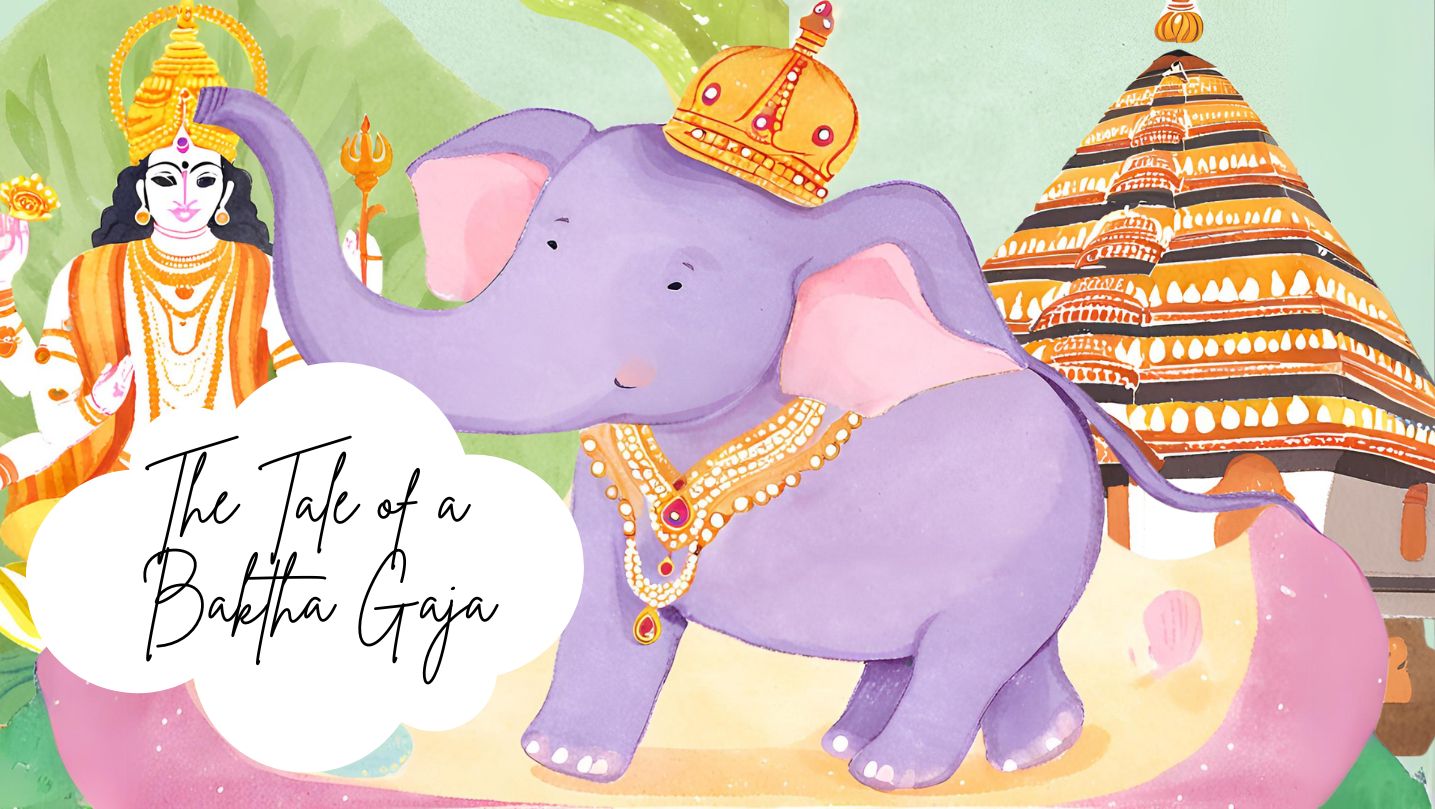
In the lush, green heart of Kerala lived an elephant who became a living legend - a tale of an elephant turned into a bakth. His name was Keshavan, bu...
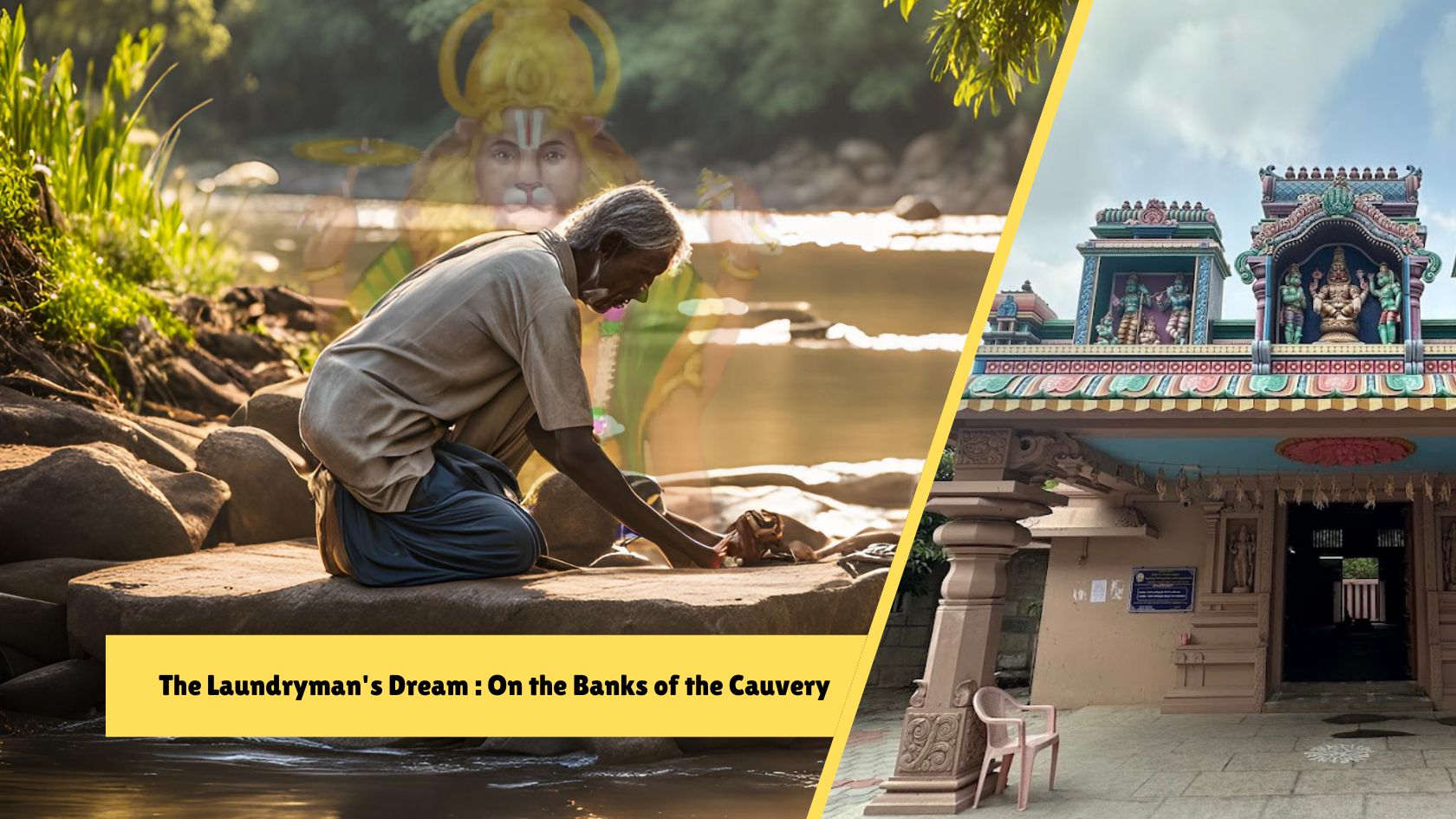
The sun beat down on my back as we stepped out of the car, the air thick with the humidity of rural Tamil Nadu. Chinthalavadi, a small village nestled...
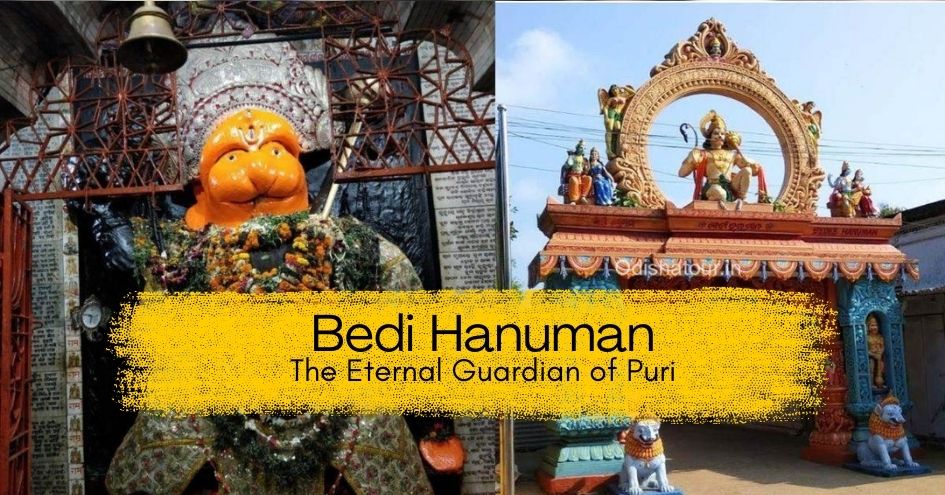
There are Ashta Mahaviras (eight manifestations of Lord Hanuman) engaged in protecting Puri Dham in Odisha. They are Siddha Mahavira, Daria Mahavira o...